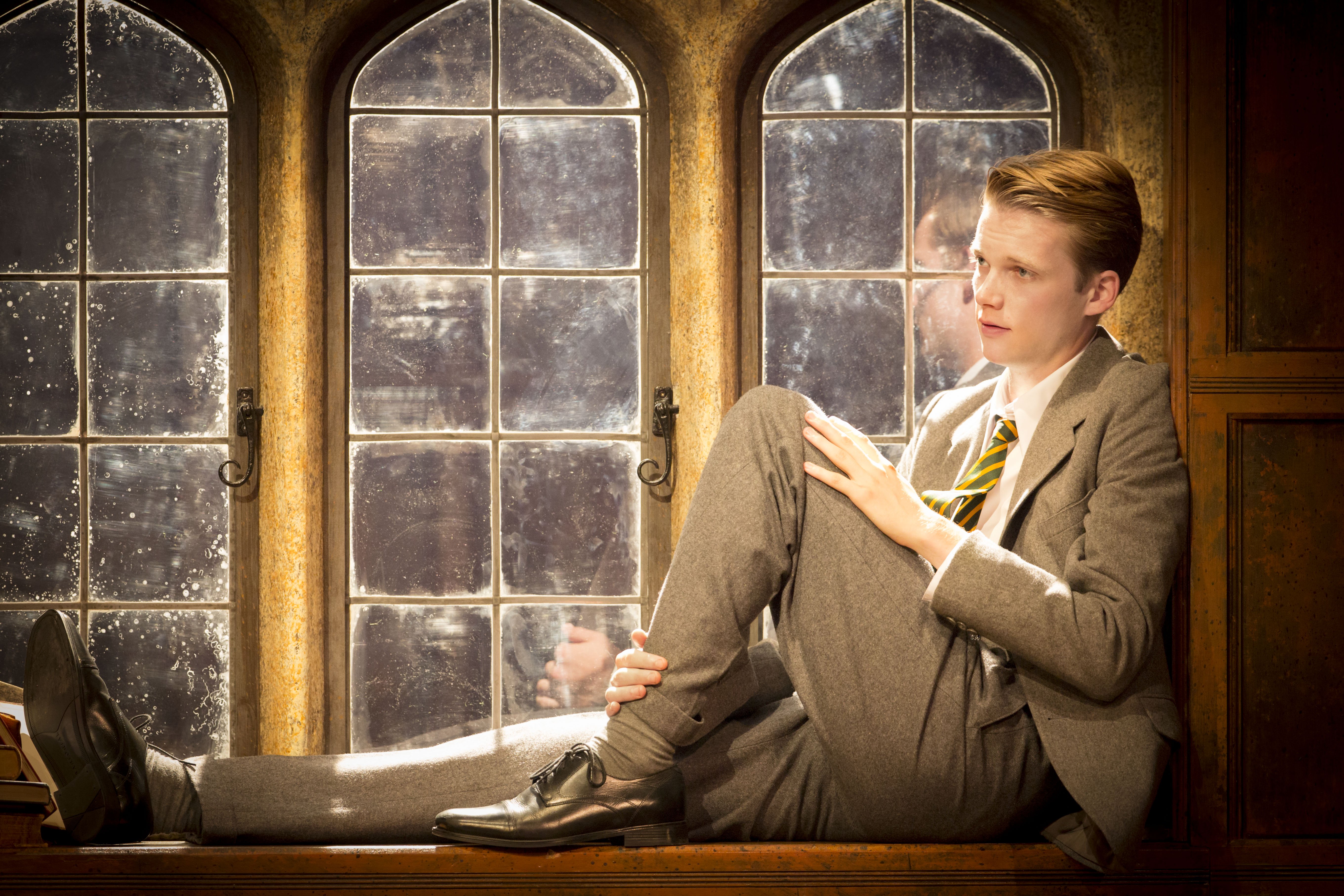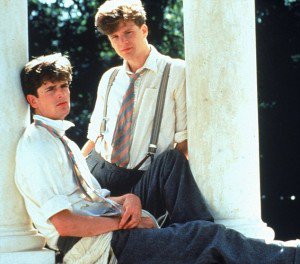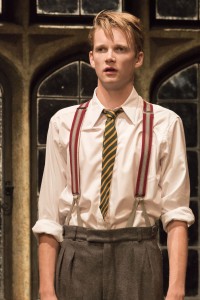‘Another Country’ star Rob Callendar on gay play’s revival
By Ben Kelly

is no ordinary play. It single handedly launched the careers of a generation of British actors; Rupert Everett, Daniel Day Lewis and Kenneth Branagh were all involved in the original production, and Colin Firth got on board for the 1984 film adaptation – which is celebrating its 30th anniversary this year. To mark this, the play is being revived at London’s Trafalgar Studios, following a successful run in Chichester. We caught up with young British actor Rob Callendar, who plays the openly gay character originally portrayed by Everett on stage and screen, whose sexuality in a 1930s English boarding school leads him through various troubles.
This is a hugely important play – how aware of it were you before you got involved
Well I went to the school that Julian Mitchell (the writer) went to, so I read it there. A lot of things that are talked about in the play are very specific to that style of school, but I think because Julian went to Winchester it’s got a lot of similarities to the play.
You’ve got big shoes to fill – not just with Rupert Everett, but the associations with those other big names. Does that weight heavily on you?
It doesn’t really factor in so much. I think the story is so important, you need to immerse yourself so much that you kind of forget what has come before, and you just need to tell it again. It’s worth reviving.
 Do you hope any of the ‘alumni’ will come and see it in London?
Do you hope any of the ‘alumni’ will come and see it in London?
Well Rupert came to see it in Chichester but hopefully if they’re around they’ll be able to come and it would be lovely if they could.
Did Rupert enjoy it?
He was very, very sweet about it. He seemed quite moved I think – you know, coming back to a show that really launched him and that he really believes in, and if you look at the body of work that he’s still doing, he really believes in what this play is about. So for him I think it has a lot of significance.
Do you think the play has relevance to now or do you think this will always be a period piece?
I think there are period elements to it but I think the specific period is something that will make it more universal. The idea behind it is quite simply ‘what would make a man betray his country?’ and in this case Julian’s hypothesis is that one of the things that happened to Guy Burgess (whose real story was the basis for the play), is that his sexuality was oppressed in some way, and having to smother it to conform can definitely create a lot of tension and I think all of that stuff is completely universal. If you look at people like Edward Snowden, you know, they don’t agree with what their country is doing, just like the characters in the play. And I think that can lead you down the line of questioning, what do I not agree with about my country? Which is always going to be a dangerous line of questioning.
Obviously it taps in to that age old myth that boy’s boarding schools are full of homoerotic acts. Was that truthful, in your experience?
I certainly think things have changed. I went back up to Winchester and I’ve spoken to a lot of them now. I really can’t speak for what the school’s policy was. I know that amongst the boys the environment was not geared towards acceptance of that kind of behaviour. I think experimentation at that age is going to happen anywhere and if you’re in a society of entirely boys and you only have free time when you’ve finished your homework and then you’re in a boarding house with 50 other boys, of course quite a lot of that is going to happen. But then it was never spoken about and I think for people who are just experimenting, that is not a dangerous thing. But there were definitely people when I was there who had a really tough time because they were certain of their sexuality and it wasn’t really respected. It was disrespected.
So in some ways a little bit of those old prejudices still hang on in some places, even though it’s a bit more normal to be open?
Yeah, I mean I think these schools are incredibly progressive now and they’re definitely trying to push it away from that, so I wouldn’t want to show them in the wrong light. But if you look at what goes on in American colleges too, this sort of hazing mentality of doing very homosexual acts but then during the day time it’s very macho and none of it is talked about. So these things do tend to happen and it’s just about trying to make the environment they happen in the least oppressive and negative, because anything that makes someone feel isolated from their society is going to have very negative effects.
Do you have a gay kiss in the play?
No, although my lover is actually a part of the film, in the play he’s only really mentioned, he’s not in it. I talk about him constantly. He’s more of this dream guy, the perfect man that you can fall in love with. And I think that’s why Julian didn’t want to depict him in the play, because you can always fall short; whereas if it’s kept in the audience’s imagination, you can just imagine what the perfect man might be.
Another Country runs at Trafalgar Studios, London, until 21st June. Tickets available here.

